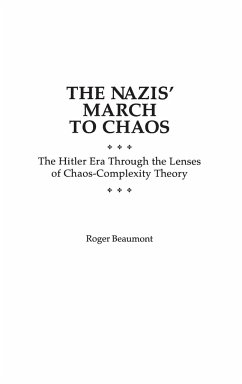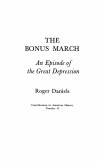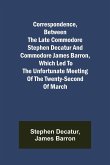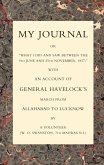Rather than a technical treatise based on equations, this study of the Hitler era in Germany from the standpoint of chaos-complexity theory is a narrative history based on a non-linear perspective. After defining basic chaos-complexity concepts and terms, like sensitivity to initial conditions and fractals, the book explores the Third Reich as a chaotic system; the clash between the image of Nazi technical prowess and the anti-modernism in National Socialist ideology; and German and Nazi military tactics and doctrine as ways of coping with the chaos of war and imposing it upon the enemy. Beaumont also looks at attempts to instill the arrogance and rage of the Nazi Party's brown-shirted storm troops into the Wehrmacht through the National Socialist Leadership Officer program, the Nazi Commissars. What were the intricate causal roots of the Endloesung or Final Solution? Why did the Allies refuse to mount a direct attack on the Nazi infrastructure responsible for the Holocaust? The study concludes with a discussion of paradoxes and implications, considering such questions as whether Nazism was a form of chaos, in the theoretical sense of its being a degree of order within apparently random turbulence, or a kind of recurring pathology, as well as whether social and historical processes are tractable to chaos-complexity-based analyses.








